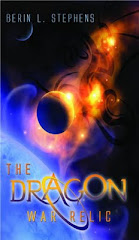II. Why Writing Comedy is Easy
“Analyzing humor is like
dissecting a frog. They both die in the process.” E.B. White
How ya'll been? I hope you haven't
lost too much sleep in anticipation of this week's installment.
Here is what I believe: writing
comedy is easy. “Well, that's easy for you to say,” you say. “You
have a natural knack for it. Unless you have the gift, it's
hopeless.”
Not so, my friends. Anyone can
learn to write funny, as long as you know a few principles. Being
funny in real life is another matter, and I can't help you there. But
writing? That's something we can work with.
Why is comedy easy? There is one
important thing to remember: everyone wants to laugh. Well,
everyone except maybe Mrs. Axechucker, your junior high librarian.
Even though it's true that everyone has a different sense of humor,
just about everyone is looking for something they can laugh at. It's
natural and it feels good. When they pick up your comedic
masterpiece, they are rooting for you to succeed at making them
laugh. We all have to deal with stress in our daily lives and
laughter is a great way to relieve it. I believe we comedy writers
don't get enough credit for keeping people from going psycho after a
hard day's work. Comedy saves lives.
On a side note,
I remember reading about a man, Norman Cousins, who was diagnosed
with an 'incurable' illness and sent home to die. He decided laughter
would cure his disease, so he got a bunch of Marx brothers movies and
laughed himself back to health. True story. Comedy saves lives.
I think stand
up comics have done us a bit of a disservice and make us put unfair
expectations upon ourselves. The good ones can get us laughing almost
every time with their punch lines. It makes us think, “All my jokes
need to do this, too. All of my humor needs to end with an amazing
zinger that has everyone rolling on the floor.” Though that's not a
bad goal, we don't actually have to do that. Humor doesn't rely upon
hitting a home run each time we go to bat. It can be, and usually is,
more subtle.
Here's another
thing: we don't have to write the perfect joke with the first try.
There's this thing called rewriting. We'll get several chances during
each of our edits to improve or upgrade the joke we first wrote. Many
times as I'm writing, I think, “Something funny needs to go here.”
I put my brain to work on coming up with something funny, and all I
get is, “spice this scene up with a llama.” Or sometimes I just
write: [insert joke here]. When nothing better comes along, I'll use
whatever poor, weak excuse for a joke I have. There, I put a 'funny'
in, but I know I don't want to keep it. I call them 'placer jokes'.
When I come back later, I see that joke and go, “Ugh.” So I try
again. I may improve it, come up with a better one, or cut it. But
that's the thing, we get several shots at coming up with a better
line.
Related to the
above point is that most jokes are garbage. They say 90% of them are
crap. This is true for everyone, even the greatest comedy writers.
The trick is to generate, on average, ten jokes for every one we want
to use. This is what those great stand up comics do. The odds are
we'll come up with an upgrade at some point. This principle applies
to plotting our stories, too, which is to not necessarily go with
your first thought but to brainstorm several ideas and then pick the
best one.
Another thing
to help overall with comedy writing is to be a comedy connoisseur.
Try watching sitcoms and comedic movies. And if you want to write
clean humor, watch the old classics: Leave it to Beaver, Get Smart,
Bewitched, The Dick Van Dyke show, etc. Many of these shows had great
humor and writing without the questionable stuff. It also can get us
in a humorous mood which helps when writing comedy. And when you do
find something funny to you, write it down in your comedy journal.
This applies to books, too.
Lastly, don't
be afraid to let other people read your stuff. This is especially
true with comedy. Have several people read it and get responses from
them: friends, family, writer's group/enemies. It's also interesting
to note who found what to be funny. It will be different for each
reader, but if no one likes a joke, that's a good indication to cut
it. Often, it is better to have no joke at all than a lame one.
I learned this
recently with my attempt to be the first person to write a dystopian
comedy. It failed just as miserably as my attempt to write Amish
science fiction. The grim mood of the novel made the attempts at
humor feel wrong and out of place. As much as my internal comedian
hated cutting out all the jokes, it improved the story immensely when
I did.
So, don't
despair my fellow comedians. In the next articles, we'll explore some
concepts and techniques we can use to create an 'atmosphere of
funny'. And always remember, comedy saves lives.
